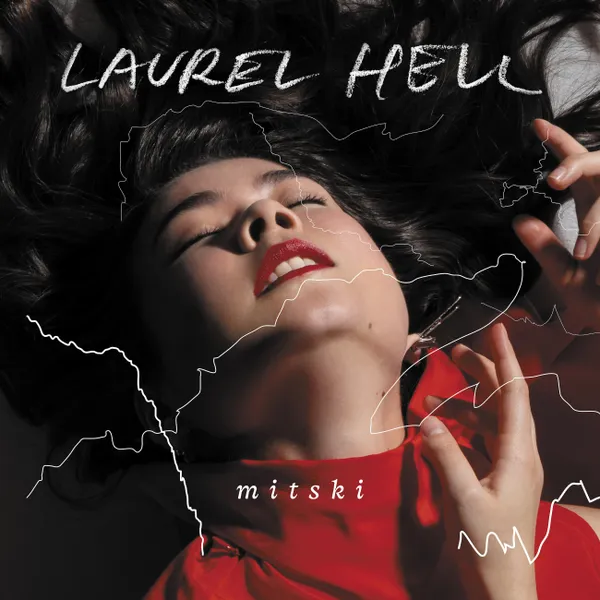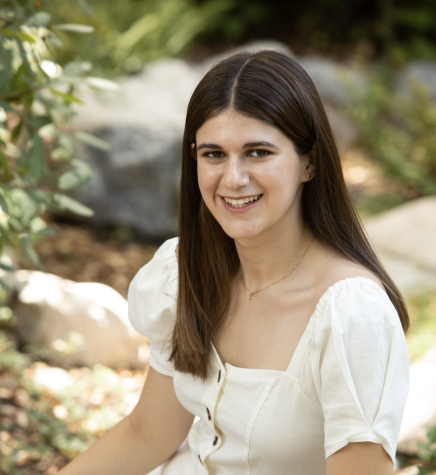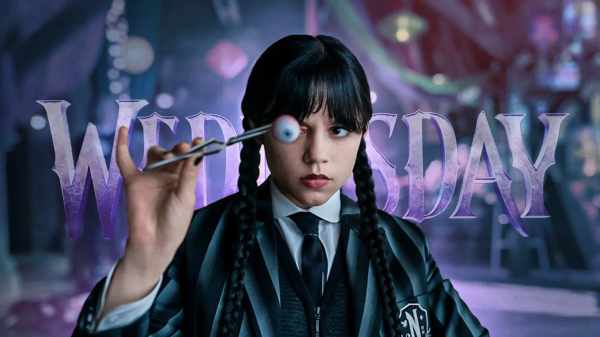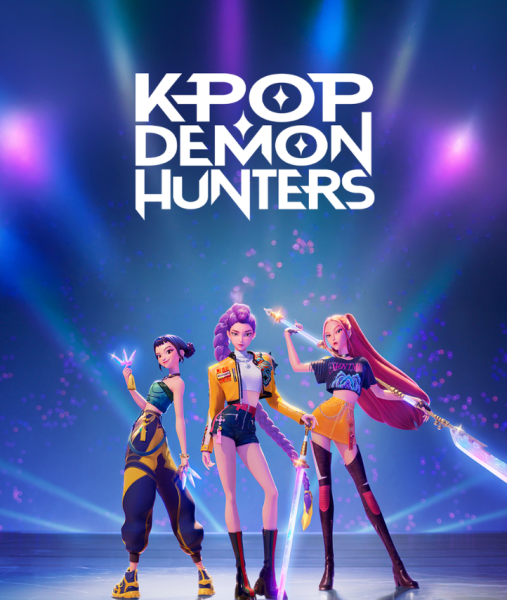Laurel Hell: Mitski’s Bittersweet Farewell

Image Courtesy of Pitchfork
After a hiatus that lasted for nearly four years, the renowned indie rock artist Mitski Miyawaki returns with Laurel Hell, an album that met the high musical standards she has set for herself over her years of songwriting. The album (her sixth one to date) features eleven short but punchy songs, and the entire collection weaves together to deliver a series of goodbyes: a goodbye to a hypothetical lover, a goodbye to her former self, and, most notably, a goodbye to the tortuous cycle of pumping out new music—at least for now.
While Laurel Hell is unmistakably reminiscent of Mitski’s usual songwriting style, it feels more heavy than its predecessors. The instrumentation, namely the heavy synth and melodious riffs (in songs like “Working for the Knife” and “The Only Heartbreaker”), portrays a sense of unfulfilled longing that is felt even beyond the lyrics themselves. The more upbeat songs keep the album from feeling too woe-ridden, but the more mellow tracks provide a layer of depth that Mitski has been known to execute masterfully in the past.
The first song from Laurel Hell that was available to the public was “Working for the Knife,” a weary yet emotive lament about the guilt of not constantly creating as someone who had chosen a career dedicated to doing so. The very first line of the song is “I cry at the start of every movie / I guess ‘cause I wish I was making things too / But I’m working for the knife,” where Mitski lets the listener in on her frustrations as an artist. “Working for the Knife” was a perfect “introductory song” to Laurel Hell; it is just modest enough without being too downbeat, and it sets the tone for the songs that will follow it. The hazy synth waves synergize nicely with the satisfying percussion line, and even though the lyrics are grim, you find yourself nodding your head in time with the music.
“Stay Soft” is another more bright-sounding track, where Mitski sings about where her vulnerability has led her. The straight, rhythmic, and reliable piano chords make the song feel nostalgic for a feeling that the listener hasn’t yet experienced. “The Only Heartbreaker” is a pithy and powerful song about taking the blame in a relationship, and it has a guitar riff just before the two minute mark that is so infectious I couldn’t help but learn it myself.
“Heat Lightning” and “I Guess” are softer in tone, and the instrumentals are a bit murkier. “I Guess” sounds like a song you’d hear in a fever dream; misty and distant, with a synth line that’s just a smidge out of tune. “Heat Lightning” is mellow and gentle—fitting sensations for a song about surrender.
“Love Me More” and “Should’ve Been Me” are the kind of songs you could either cry to or belt out in the shower (perhaps even both!). Their emotional and addictive choruses make them impossible to stop listening to, and the chord changes, especially in “Love Me More,” send chills down your spine.
At the very end of Laurel Hell, “That’s Our Lamp” provides the perfect closure, figuratively tying the album up in a neat, delicate bow. The song fades out to near silence at its conclusion, until all you can hear is Mitski softly singing, “That’s where you loved me.” The use of past tense and the repetition of the lyric make the song truly feel like she is bidding a part of her past farewell.
Overall, Laurel Hell is undoubtedly some of Mitski’s best work; the album provides her fans with a riveting collection of songs that will certainly go down in history as some of her best.

Grade: 12
Years on Staff: 5
Why are you writing for The Flintridge Press?
I'm writing for the Flintridge Press because I love learning about...







